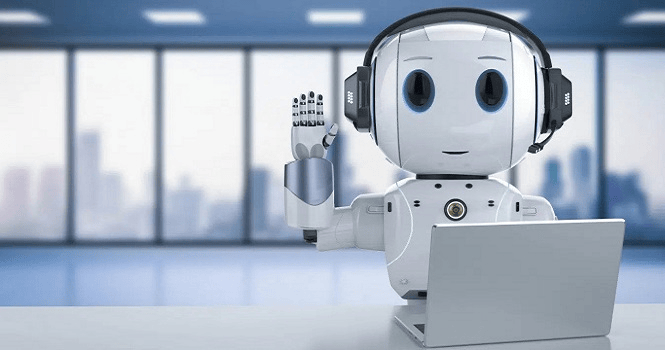Table Of Contents
Technology and innovation are key factors contributing to the development of society and individuals’ daily lives.
Artificial intelligence is one of the most important modern technologies that has brought about significant changes in various fields. However, artificial intelligence is not without its drawbacks and challenges. In this article, we will explore the drawbacks of artificial intelligence and its impact on society.
What is Artificial Intelligence?
Artificial intelligence can be defined as a modern field of knowledge aimed at developing systems and programs capable of executing tasks that may require thinking, analysis, and decision-making in a manner similar to humans. Artificial intelligence is linked to the ability of devices and systems to learn from data, adapt to changes, and perform complex tasks more effectively than traditional systems.
The Importance of Artificial Intelligence in the Current Era
Artificial intelligence is one of the fields of the current era, as its importance has greatly increased in recent years. The term artificial intelligence has made its way into our daily lives and has been used in many applications such as robots, smart devices, data analysis, e-commerce, and more. Artificial intelligence provides significant opportunities for development and improvement in various fields such as medicine, transportation, manufacturing, agriculture, and education.
2. The Positives of Artificial Intelligence
Before we explore the drawbacks of artificial intelligence, we must mention some of the positives it offers:
Providing Solutions and Developing Services:
Artificial intelligence can provide innovative solutions to everyday problems and improve services provided to individuals and companies. Through big data analysis and machine learning, smart devices and systems can offer accurate and rapid recommendations, facilitate decision-making, and improve work efficiency.
Improving Life and Operation Ease:
Artificial intelligence helps improve daily life for people by providing innovative and intelligent capabilities. For example, smart robots can assist in caring for the elderly or automate household cleaning. Artificial intelligence can also increase the speed and efficiency of industrial operations and reduce errors and time wastage.
3. The Drawbacks of Artificial Intelligence
Despite the numerous benefits offered by artificial intelligence, it also comes with some drawbacks and challenges. We will highlight some of these drawbacks and discuss their impact on society.
Human Emotion Shortcomings in Machines:
One of the prominent drawbacks associated with artificial intelligence is the lack of human emotions in devices and systems. Despite technology’s ability to execute tasks and analyze data quickly and efficiently, it does not possess the ability to understand human emotions and deal with them in the same way humans do. This shortcoming can lead to negative repercussions such as inappropriate response to customer issues or failure to detect human emotions in communications.
Technology Linked to High Costs:
Artificial intelligence techniques are considered to be highly costly.Artificial intelligence is intricate and requires significant efforts and financial resources for its development and implementation. Access to these technologies and their applications may be limited to companies or institutions that possess the necessary resources, leading to an increase in the technological gap between larger entities and smaller ones and challenges in adopting modern technology in some sectors.
4. Impact of Artificial Intelligence on Society
The evolution of technology and the use of artificial intelligence entail social and economic impacts on society. Let’s shed light on some of these potential impacts.
Change in Work Patterns and Job Loss:
The reliance of companies on technology and artificial intelligence can bring about radical changes in current work patterns and employment methods. For instance, the use of robots and smart devices can reduce the need for human labor in industries like manufacturing and logistics, leading to job losses for individuals.
Privacy Threat and Personal Data Violation:
Artificial intelligence technologies rely on collecting and analyzing vast amounts of data to teach machines and improve their performance. However, this reliance could pose a threat to personal privacy and sensitive data. The accumulation of personal data may lead to its unethical use or exploitation by unwanted parties, exposing individuals to risks related to privacy and security.
5. Ways to Overcome the Drawbacks of Artificial Intelligence
Despite the potential drawbacks of artificial intelligence, steps can be taken to overcome these drawbacks and minimize their impact on society and individuals.
Community Awareness and Policy Development:
Communities and nations must raise awareness about the risks of artificial intelligence and its potential social and ethical impacts. Governments and institutions should take measures to regulate the use of technology and implement laws and policies to protect privacy and security.
Enhancing Security and Data Protection:
Technological security should be developed and improved to maintain data confidentiality and mitigate the threats of breaches and personal data violations. Companies and institutions need to implement robust security measures and invest in network protection and digital infrastructure.
8. Examples of Artificial Intelligence Drawbacks
Here are some examples of drawbacks of artificial intelligence:
Self-Control and Lack of Accountability:
The obscurity of artificial intelligence and its unmonitored use can lead to loss of control and accountability. Robots and smart systems could potentially turn into tools for negative purposes or misuse of personal data without the owner’s consent.
Cybersecurity Threat and Technological Monopoly:
By enhancing artificial intelligence and its data processing capabilities, it can pose cybersecurity and security threats. There should be a focus on developing strong security solutions to protect devices and data from cyber threats and prevent monopolistic control of technology.
9. Conclusion
In conclusion, artificial intelligence is a remarkable technology that offers vast potential in various fields, but it is not without drawbacks and challenges. We must handle the technology cautiously and balance its usage, focusing on sustainable development, achieving general benefits, and maintaining security and privacy.


